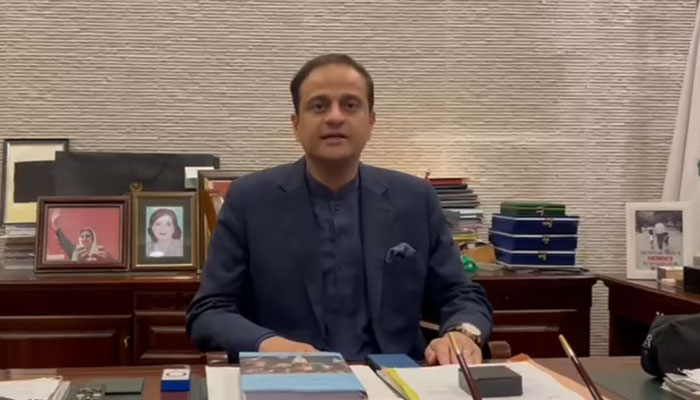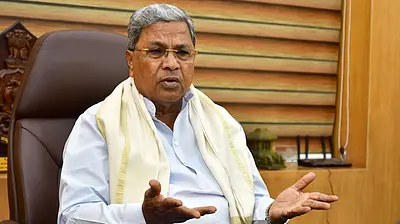Altruist
Minister (2k+ posts)
While Pakistan remains distracted by political theatrics, a silent war is being waged—one that doesn't involve tanks or missiles, but water. It’s a war of strategic dams and diverted rivers, and unfortunately, Pakistan is losing. India's long-term water strategy, executed under the guise of legality and development, is slowly but surely squeezing Pakistan's lifeline: the Indus River system.
The Indus Waters Treaty (IWT), signed in 1960, was meant to ensure peaceful water sharing between India and Pakistan. Under this agreement, India received control over the eastern rivers (Ravi, Beas, and Sutlej), while Pakistan was guaranteed the waters of the western rivers (Indus, Jhelum, and Chenab). But for years now, India has been testing the boundaries of this treaty, if not outright violating it.
Despite India's growing dam-building spree on Pakistan’s share of rivers, successive Pakistani governments have failed to mount a serious response. The clearest example of this inaction is the Neelum-Jhelum project. It was meant to be a game-changer in securing Pakistan's claim to the Neelum River’s water. But delays, cost overruns, and indecisive leadership—most notably under Nawaz Sharif—allowed India to complete its Kishanganga project first, thereby legally weakening Pakistan’s claim under the treaty’s provisions.
This isn't just poor planning; it's national negligence. And worse, it’s happening in broad daylight. India has not only accelerated dam construction on our rivers, but is now collaborating with Afghanistan to build dams on rivers that eventually flow into Pakistan. It’s a strategic encirclement of Pakistan’s water future. And we, as a nation, remain disturbingly passive.
Where is our leadership in all of this? Where is the outrage? And more importantly, where is the media?
Our airwaves are clogged with sensational political brawls and celebrity scandals, while the biggest existential threat to our survival gets little more than a passing mention. The Pakistani media has largely failed to treat the water crisis as the national emergency it is. Either due to a lack of understanding, fear of sounding alarmist, or sheer distraction, the silence is deafening.
This crisis cannot be overstated. Water is not just a resource; it’s the foundation of our agriculture, our economy, and our very survival. We are already ranked among the top countries facing acute water scarcity. If current trends continue, Pakistan could become a desert within a few decades, not because of climate change alone, but because of poor governance and strategic blindness.
It's time for Pakistan to wake up. We must demand proactive, long-term water diplomacy. We need a media that investigates, informs, and educates. And we need leaders who recognize that water security is national security.
Ignoring India’s water strategy isn’t just shortsighted—it’s suicidal.
The Indus Waters Treaty (IWT), signed in 1960, was meant to ensure peaceful water sharing between India and Pakistan. Under this agreement, India received control over the eastern rivers (Ravi, Beas, and Sutlej), while Pakistan was guaranteed the waters of the western rivers (Indus, Jhelum, and Chenab). But for years now, India has been testing the boundaries of this treaty, if not outright violating it.
Despite India's growing dam-building spree on Pakistan’s share of rivers, successive Pakistani governments have failed to mount a serious response. The clearest example of this inaction is the Neelum-Jhelum project. It was meant to be a game-changer in securing Pakistan's claim to the Neelum River’s water. But delays, cost overruns, and indecisive leadership—most notably under Nawaz Sharif—allowed India to complete its Kishanganga project first, thereby legally weakening Pakistan’s claim under the treaty’s provisions.
This isn't just poor planning; it's national negligence. And worse, it’s happening in broad daylight. India has not only accelerated dam construction on our rivers, but is now collaborating with Afghanistan to build dams on rivers that eventually flow into Pakistan. It’s a strategic encirclement of Pakistan’s water future. And we, as a nation, remain disturbingly passive.
Where is our leadership in all of this? Where is the outrage? And more importantly, where is the media?
Our airwaves are clogged with sensational political brawls and celebrity scandals, while the biggest existential threat to our survival gets little more than a passing mention. The Pakistani media has largely failed to treat the water crisis as the national emergency it is. Either due to a lack of understanding, fear of sounding alarmist, or sheer distraction, the silence is deafening.
This crisis cannot be overstated. Water is not just a resource; it’s the foundation of our agriculture, our economy, and our very survival. We are already ranked among the top countries facing acute water scarcity. If current trends continue, Pakistan could become a desert within a few decades, not because of climate change alone, but because of poor governance and strategic blindness.
It's time for Pakistan to wake up. We must demand proactive, long-term water diplomacy. We need a media that investigates, informs, and educates. And we need leaders who recognize that water security is national security.
Ignoring India’s water strategy isn’t just shortsighted—it’s suicidal.
Last edited:


































